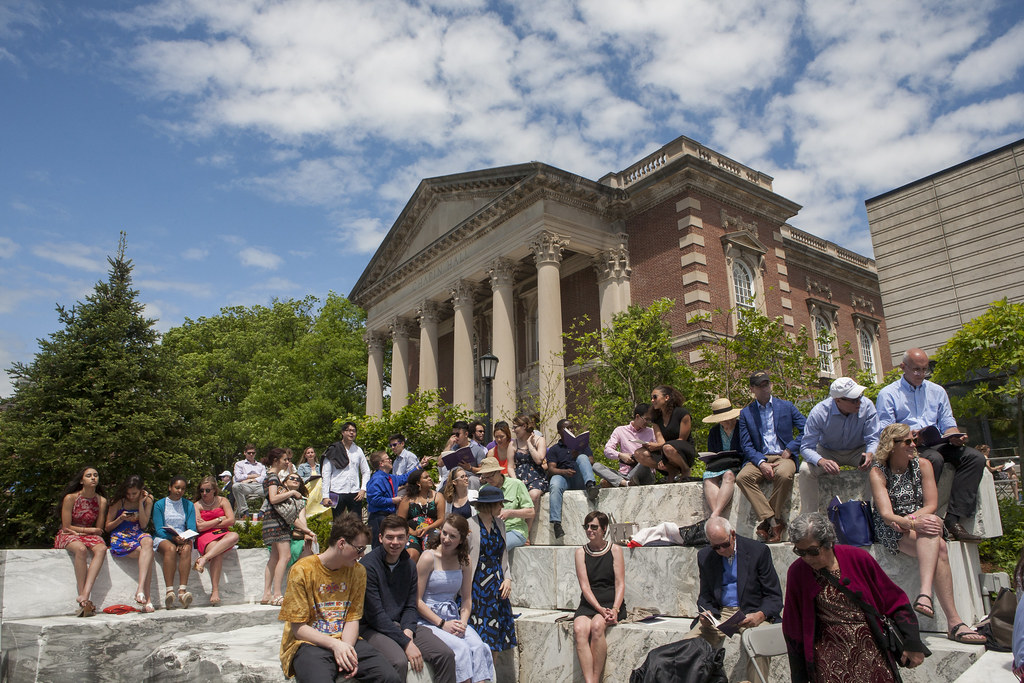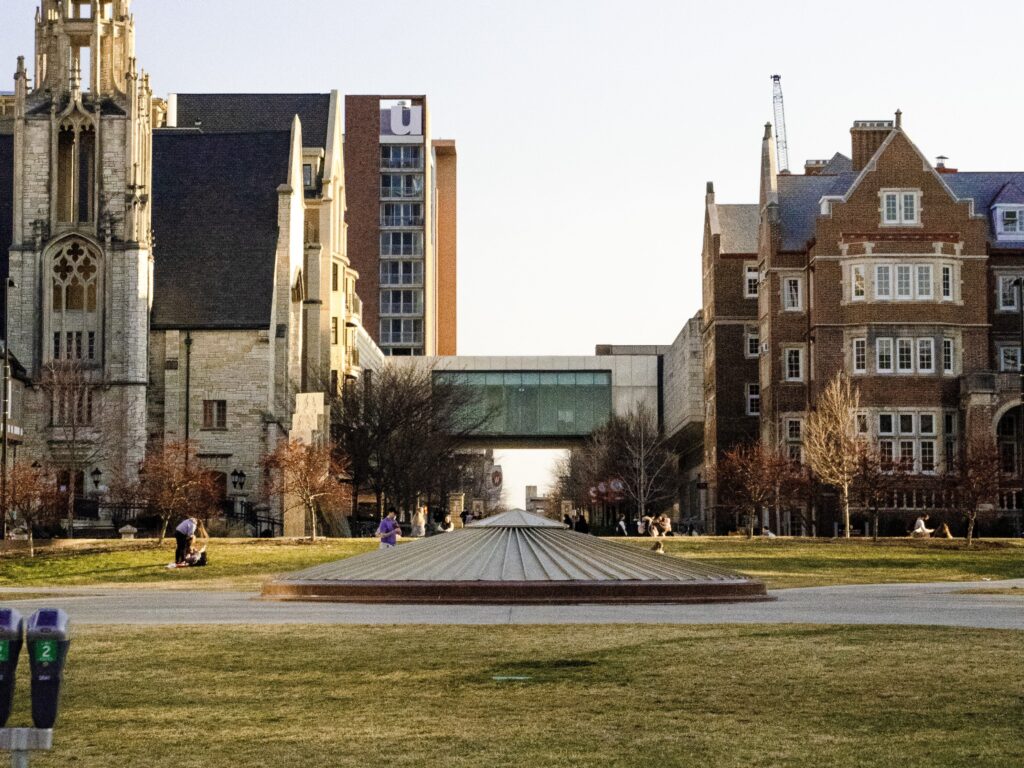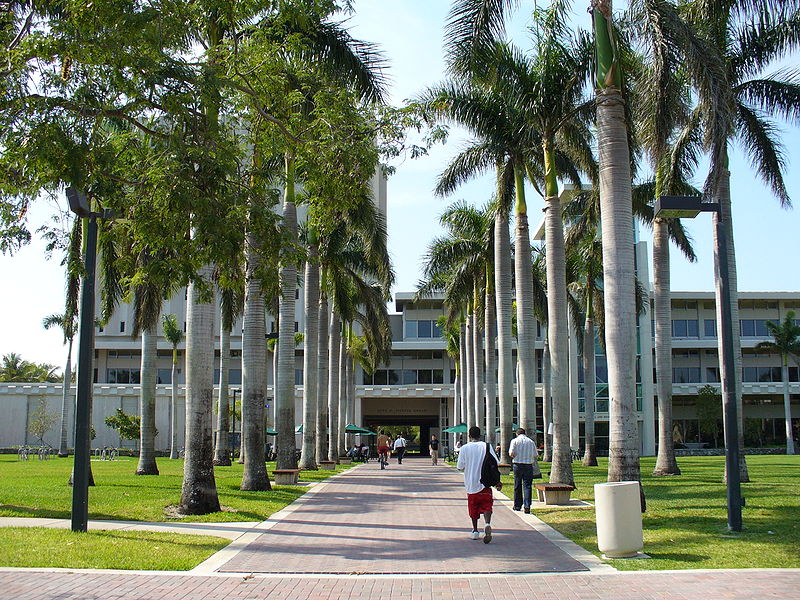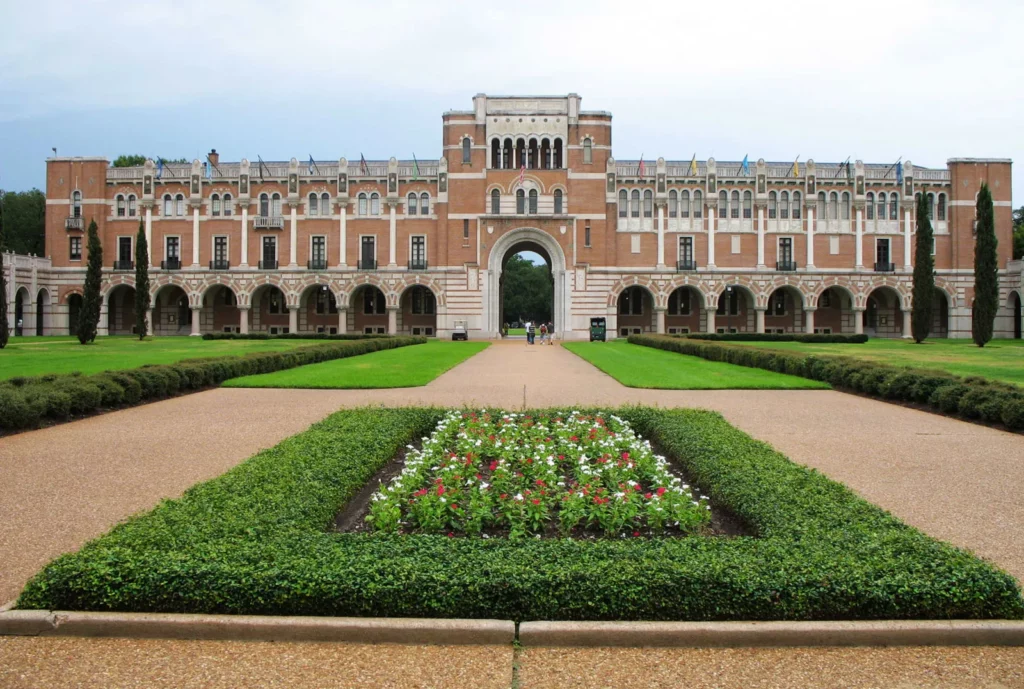
Campus Life at Top Universities
Starting college is an exciting adventure, filled with opportunities to explore and immerse yourself in campus life. Beyond lectures and exams, it’s college activities and on-campus events that truly shape your college experience, friendships, and future opportunities. From lounging on the campus quad to exploring your college town and playing intramural sports, there’s a lot that goes into the student experience. Understanding the benefits of campus involvement can help you take full advantage of everything your college has to offer.
In this article we will cover the ins and outs of campus life and things you should know as a new college student, including:
- What campus life is really all about, including everything from daily routines to student culture, college activities, and campus events
- How college life is similar and different from what you know in high school
- The different services that campuses offer including campus dining services, libraries, student centers, and recreational facilities
- The pros of living on campus, like immersion in college culture, as well as the cons, like cost of living
- How the size and location of your college can impact student and college life
- A closer look at campus life at specific schools: UCLA, NYU, Williams College, and UNC
- Insights into college life rankings from sources like Niche, Princeton Review, and U.S. News
- A list of schools known for having the best campus life (which includes some of the best college campuses and best college towns)
- Practical tips for making the most of your college experience
- Advice on how to find college events and college activities, join the best college clubs, and even participate in IM leagues on campus
- Tips on making the most of campus life and choosing the best campus for you
Ready to dive in? First, let’s talk about what campus life is really like.
What is campus life really like?
Campus life in college is a unique blend of routine and spontaneity. Most students follow a daily schedule that includes classes, meals, study time, and social college activities, such as college events and intramural sports. The key to a successful college experience is balancing your academics, social life, and personal well-being.
Day-to-day life
For many students, a typical day starts with morning classes, sometimes as early as 8 a.m., followed by lunch with friends or a quick break to recharge. Afternoons are often packed with more classes, lab sessions, or study time at the library. Evenings bring a balance of academics and downtime, where students might head to college clubs, hit the gym, participate in college activities, or play intramural sports.
As the night goes on, many settle in for late-night study sessions, especially when exams are around the corner. One of the key lessons you will learn in college is how to manage your time, prioritize your mental and physical health, and still make time for memorable college experiences.
College identity and setting
Beyond the daily schedule, a college’s traditions, school spirit, student culture, and physical campus all play a big role in shaping your overall college experience. Each college has its own identity, which helps to foster a sense of community and pride among students. School spirit comes alive at college events and pep rallies, creating moments that bring the student body together.
Student culture can emphasize collaboration and creativity or create a more competitive and career-focused environment. And the campus layout and setting matters! A beautiful, walkable campus with open spaces and cozy study spots can help you feel more connected and at ease. On the other hand, some students may find the buzz of a city campus exciting and motivating.
Altogether, these elements combine to shape not just how you spend your days, but how you remember your college experience. Some will even refer to this period as the best four years of their lives.
High school vs. College Life

The transition from high school to college brings major changes, especially when it comes to class schedules, social life, and personal independence. In high school, students follow a fixed schedule with six to eight classes each day, five days a week. There is very little flexibility in how students’ time is structured — something every high schooler knows.
Academics
In college, however, students often have classes that meet just once, twice, or three times a week, depending on the course. This creates a more flexible schedule that students can build around their preferences. Along with that flexibility comes increased academic expectations.
College courses tend to move faster and involve more independent reading and assignments. As such, they require strong time-management skills. Professors may not remind students about every deadline, so staying organized and self-motivated is essential.
Social life
Socially, college is also a big shift. In high school, students are usually surrounded by people they have known for years, often growing up in the same town or community. College introduces an entirely new environment filled with students from different states, countries, cultures, and backgrounds. That diversity can be both exciting and overwhelming.
Making new friends, adjusting to different perspectives, and finding your place in a larger, unfamiliar community is a crucial part of the college experience. It’s a chance to grow socially, broaden your worldview, and step outside your comfort zone.
Independence
For most, the biggest change of all is the newfound independence. College student life will likely be your first time living away from home, which means you are responsible for everything from getting to class to doing your own laundry, budgeting money, and making decisions about how to spend your time. With no one around to monitor daily routines, college students quickly learn the importance of setting priorities, creating balance, and making choices that align with their goals.
This independence can be liberating, but it also demands maturity and accountability. Overall, your college experience is a time of significant personal growth, where you learn how to navigate life on your own terms.
Campus life services
College campuses are designed to support students both inside and outside the classroom, offering a wide range of campus life services to help you succeed and feel at home. Core campus life services include campus dining services (often dining halls), which provide daily meals with various options to suit your dietary needs and preferences. Dorms or residence halls offer students a place to live on or near campus, often with built-in social opportunities through residential college events. Libraries are central hubs for studying, research, and accessing academic resources. Student centers serve as gathering places for clubs, college events, and casual hangouts.
In addition to these day-to-day services, campus life services also offer support resources to help students thrive. Mental health services provide counseling, crisis support, and workshops to address stress, anxiety, or personal challenges. Academic advising helps students plan their courses, choose majors, and stay on track for graduation. Tutoring centers offer help in various subjects and are often staffed by peers or professionals. Career centers assist with resume writing, internship placement, interview preparation, and job searches, helping students make the leap from college to career.
Healthcare and recreational services round out campus life services by promoting physical wellness. Most colleges have on-campus health clinics that offer medical care, immunizations, and referrals for more specialized treatment. Recreational facilities often include fitness centers, indoor basketball courts, swimming pools, group fitness campus events, and opportunities to play intramural sports. These resources not only help students stay healthy but also provide ways to manage stress and stay active.
Altogether, these campus services play a crucial role in supporting the academic, emotional, and physical well-being of college students during their college experience.
Pros and cons of living on campus

Living on campus comes with a mix of benefits and challenges that can shape your overall college experience. One of the biggest advantages is the opportunity to be fully immersed in college life. Living in a dorm puts you at the heart of the experience, surrounded by fellow students who are going through the same transition. It’s easy to make friends, join late-night study sessions, or head to spontaneous college events, all without needing to leave campus. Proximity is another major perk: classes, libraries, campus dining services, and campus events are usually just a short walk away. This convenience makes it easier to manage time, get involved in college activities, and take full advantage of the college experience.
However, there are also some drawbacks to consider. Living in a shared space can mean less privacy and limited control over your environment. Roommates, communal bathrooms, and noise from neighbors are part of the package. Many residence halls also have rules and regulations, such as quiet hours or guest policies, which may feel restrictive to some students and make off-campus living seem more appealing. On top of that, the cost of on-campus housing can be high, especially when bundled with meal plans. And while the social scene is a plus for many, it can also become a distraction if you’re not careful about setting boundaries or maintaining a study routine.
Ultimately, living on campus offers a unique way to ease into college student life, meet new people, and stay connected to campus events. But, it also requires adapting to communal living and learning how to manage independence.
How does size and location impact campus life?
The size and setting of a college campus can significantly shape your college experience, from social life to daily routines and transportation needs.
Small vs. large campuses
Smaller campuses often foster a tight-knit community where it is easier to recognize familiar faces, form close relationships, and receive more personalized attention from professors and staff. Classes may be smaller, and the overall environment can feel more intimate and supportive.
In contrast, larger campuses tend to offer a wider range of resources, college clubs, and academic programs. With a bigger student body, there’s usually more diversity in perspectives and opportunities, but it can also feel overwhelming or harder to stand out socially. Some students thrive in the energy of a large university, while others prefer the personal connections that come more naturally on a smaller campus.
Urban vs. rural vs. suburban campuses
The location of a campus, whether urban, rural, or suburban, also plays a big role in shaping student life. Urban campuses are typically located in the heart of a city, giving students access to public transportation, internships, cultural attractions, restaurants, and nightlife. Rural campuses, on the other hand, are more isolated and often surrounded by natural beauty. They tend to foster a strong sense of campus community as students spend most of their time on campus. Suburban campuses strike a balance, offering a quieter, residential feel, while still being close enough to nearby towns or cities for weekend outings or work opportunities.
Getting around on campus varies depending on the layout and location. Many students walk or bike between classes, especially on medium-sized or walkable campuses. Some colleges provide shuttle buses to help students travel across larger or spread-out campuses. In urban areas, students often rely on public transportation like buses, subways, or trains to explore the city. In more rural or suburban areas, having a car can be helpful, or even necessary, for running errands, getting off campus, or commuting to internships.
Ultimately, the mobility and layout of a campus, and its surrounding environment, can have a big impact on your lifestyle, independence, and the kind of college experience you create.
Exploring college campuses

As you start thinking seriously about where you want to spend your college years, it’s important to go beyond just looking at academics or rankings. The next step is exploring what life is really like on different campuses. In the following sections, we’ll take a closer look at a variety of college campuses and share insights into campus life rankings to help you get a better sense of what each school offers outside the classroom.
One of the best ways to understand a college’s atmosphere is by attending a campus tour. Walking through the dorms, grabbing a meal in the dining hall, sitting in on a class, or simply observing students as they go about their day can give you a feel for whether the environment suits you. Of course, not everyone can travel to every campus they’re considering, and that’s where virtual tours come in. Many colleges offer dorm room tours, live student-led Q&A sessions, and video walkthroughs of major campus landmarks, allowing you to get a feel for the place no matter where you are.
As you explore, whether in person or online, try to picture yourself as part of that campus community. Take note of the dorm conditions, how accessible dining options are, the layout and vibe of academic buildings, the quality of the library and fitness facilities, and the overall energy of the student body. Do people seem engaged, friendly, stressed, or comfortable? Finding a good “fit” goes beyond stats; it’s about where you feel like you’ll be supported and can thrive both academically and personally.
Campus life at UCLA

UCLA is a large public university located in the vibrant neighborhood of Westwood in Los Angeles, California. Its sprawling, 419-acre campus offers palm-lined walkways, scenic views, and easy access to both the city and nearby beaches. Despite being in a major urban area, the campus itself feels like a self-contained college town.
UCLA campus life offers a variety of housing options, including traditional dorms and apartment-style living. First-year students are guaranteed campus housing for three years if they meet deadlines, and most freshmen live on campus. Dining options are top-knotch as UCLA campus life frequently ranks among the best for college food, with diverse, high-quality options across multiple award-winning dining halls.
College spirit, or more specifically, Bruin spirit is strong. Students celebrate with traditions like the Midnight Yell during finals, the Beat ‘SC Week rivalry with USC, and the iconic Bruin Walk lined with student orgs and performers. The vibrant social scene includes campus concerts, cultural festivals, and college clubs that highlight the UCLA campus life, diverse student population, and plentiful campus events.
Campus life at NYU

NYU is an urban university integrated directly into downtown Manhattan, specifically Greenwich Village. There’s no defined campus in the traditional sense; instead, buildings and facilities are woven throughout the city streets, making New York City itself an extension of the campus.
NYU provides campus housing in high-rise residence halls across Manhattan and Brooklyn.
Living on campus as a freshman is optional; upperclassmen tend to choose off-campus living options due to cost or preference. Dining is city-style too; there are dining halls, but students also eat at local restaurants with meal plan partnerships or meal swipes.
Though the urban setting is nontraditional, NYU student life has unique traditions like Welcome Week in Washington Square Park, Reality Show, a student-run orientation musical, and the quirky Ultraviolet Live talent show. With no central campus green, student clubs, organizations, and college events by the Center for Student Life pop up across the city, adding a real-world, independent feel to student life.
Campus life at Williams

Williams is a small, private liberal arts college in Williamstown, Massachusetts, a rural town in the Berkshires. The campus is picturesque and tight-knit, surrounded by mountains and scenic trails, which is a great match for students who love the outdoors, a slower pace, and crave campus community.
Campus housing is guaranteed and required for all four years. Students live in small residence halls or themed houses, fostering strong community bonds. Williams uses a family-style dining system in a few halls, which reinforces social connection. The college also recently moved toward universal free meals, enhancing equity in student life.
Williams campus life is known for its quirky and cherished traditions, including Mountain Day, a surprise day off for outdoor adventure, the Williams Trivia Contest, and First-Year Olympics. The small campus size means students are deeply engaged in college clubs, athletics, and other campus events.
Campus life at UNC

UNC-Chapel Hill is a large public university located in Chapel Hill, North Carolina, a classic college town with a walkable downtown full of shops, restaurants, and Tar Heel pride. The campus blends historic Southern charm with modern facilities and is known for its beautiful quad spaces.
UNC offers multiple residence halls across campus, with first-year students required to live on campus. While many upperclassmen choose off-campus living options, campus housing remains accessible. The dining system includes meal plans, several dining halls, and on-campus cafes, with a focus on Southern comfort food and healthy options.
UNC campus life is rich in tradition, including Rush Franklin Street after major basketball victories, UNC’s Old Well, where students sip water for good luck on the first day of class, and Carolina Fever college events for die-hard sports fans. The student body is active, diverse, and spirited, with hundreds of student orgs, college clubs, intramural sports, campus events, and opportunities to join Greek life.
Campus life rankings
When researching colleges, one helpful tool to explore is campus life rankings, including best college campuses and best college towns. These are lists that evaluate what it’s like to actually live and study at different schools, published by trusted sources like Niche, the Princeton Review, and U.S. News & World Report. They go beyond academics to highlight the everyday college experience, offering insight into the social scene, college events, support services, and overall campus vibe.
These rankings use a variety of metrics to create their lists. Common factors include quality of food and campus housing, campus safety, student diversity, athletics, student satisfaction, and retention rates, which can reflect how happy and supported students feel. Many also incorporate results from student surveys, which provide first-hand feedback on what it’s like to live, study, and socialize at each school. These metrics can give you a well-rounded picture of campus life that goes deeper than brochures or websites.
That said, while rankings can be a great starting point, they’re not one-size-fits-all. Different lists may highlight different aspects, and what one source praises might not matter as much to you personally. For example, a school known for its top-tier campus dining services may not appeal if you care more about campus culture or access to outdoor spaces. That’s why it’s so important to go beyond the rankings by doing your own research and ultimately trusting your gut. The best college campuses and best college towns for you are the ones where you can imagine yourself thriving academically, socially, and personally.
Best campus life colleges
As we’ve mentioned, campus life can vary greatly by college. Some colleges are known for their sprawling grounds, campus dining services, or campus housing, while others for their clubs and activities. Even a college’s surrounding area and climate can impact the quality of your college experience.
In this section, we will share an overview of ten of the best college campuses for student life, highlighting what makes each of them special:
10 Best Campus Life Colleges

1. University of Southern California
Located in sunny Southern California, USC is ranked #27 amongst all colleges according to U.S. News. Part of its high ranking has to do with student satisfaction related to student life. With over 1,000 clubs and a strong Greek life, students have an abundance of options for staying engaged with their peers. USC is situated in the heart of the LA metropolis, providing access to a vibrant arts and entertainment scene. Additionally, the USC campus is known for its stunning beauty and year-round nice weather.
2. University of Michigan – Ann Arbor
Campus life can also be rich in a colder climate, such as that of the University of Michigan – Ann Arbor. Ann Arbor is one of the best college towns in the nation, bustling with bookstores, coffee shops, and art galleries. On campus, Michigan students benefit from over 1,600 student organizations. The school is also known for its football pride; as a Big Ten school, game days are special events that draw tens of thousands of spectators.


3. Florida State University
Those looking for some beach time might wish to attend Florida State University in Tallahassee. Just an hour from the coast of Florida, FSU offers students warm weather and a stunning campus built with Spanish-style architecture. The school is also known for having a fun, social campus culture with an abundance of unique campus life services, such as a student cinema and one of two collegiate circuses in the nation.
4. University of Virginia
Another top public school known for its campus life is the University of Virginia, located in Charlottesville. The UVA campus is steeped in rich history; the campus was designed by Thomas Jefferson, and surrounding Charlottesville is rife with important civil war historic sites. In addition to a strong Greek like, UVA has an abundance of clubs and college activities. With the university located in an affordable area, 61% of UVA students take advantage of off-campus living opportunities.


5. University of Wisconsin – Madison
Another Big Ten college with a bustling campus culture, UW-Madison is located in a quintessential college town. Situated between two lakes, students not only have access to a wide array of campus activities, but also a breadth of outdoor activities. With 50 dining halls and 21 residential halls across two distinct neighborhoods, students have plenty of options for places to eat and socialize together.
6. University of Texas – Austin
Students looking for a buzzing college campus life should consider attending UT Austin. In addition to the city’s vibrant music, tech, and food scenes, the school offers an abundance of on campus activities via its over 1,000 clubs. UT students are also notoriously proud of their football team and show up in droves for games.


7. University of Miami
Another sunny location for your college experience is the University of Miami in Florida. Campus life is marked by the university’s presence in one of the most diverse cities in the US. Indeed, UMiami attracts students from around the world. Along with its stunning landscaping, the campus boasts a 120,000 square foot student center.
8. University of Georgia
Situated in the lively college town of Athens, Georgia, the University of Georgia has plenty to offer in the way of campus life. From the school’s rich football culture to Athen’s world-class live music scene, there is something for every type of student. In addition, the picturesque campus offers some Southern charm as a backdrop for a wonderful college experience.


9. Auburn University
An Alabama school with a strong campus culture, Auburn is also known for its football culture and charming college town. While the school has a large student population, it boasts a cozy campus and warm, welcoming student population. From Hey Day to First 56, Auburn hosts campus events year-round that draw students out to build upon long-held traditions.
10. Rice University
One of the smaller schools on our list of best campus culture, Rice University consistently ranks high for quality of student life. Part of this is due to the abundance of resources and activities for students, as well as the warmth of Houston’s climate. Rice students are known for being friendly and welcoming, especially due to the strong culture of their world-famous residential college system. And, campus dining services at Rice often receive stellar reviews. Finally, Houston offers a wide array of food, culture, and sporting events to delight students off campus.

While all of these schools will provide a rich college experience, your best campus life colleges will depend on personal preferences. Consider factors such as weather, school size, location, and, of course, student life resources and offerings.
Optimizing your college experience
Wherever you decide to go to school, your college experience will be shaped by how much you embrace what your campus has to offer. Consider saying “yes” to new experiences early on. Try out clubs, attend college events, sign up for student study groups, and sit with new people in the campus dining halls. At the same time, make sure to not overload yourself — iIt’s okay to say “no” to experiences that do not fit your needs and interests. Trying to do everything will quickly burn you out.
For many students, finding balance while in college is a challenge. This is partly due to the academic demands of a college degree, which includes studying for tests, completing projects, and keeping up with copious amounts of reading. However, it is also due to the many fun and exciting parts of college life, like parties, sports, and clubs. Some students also work while in college to help pay for their living expenses. Finding balance among all these demands takes time.
To find your own balance, take advantage of campus life services, including mental health counseling, professor office hours, tutoring, and residential associate (RA) support. These resources are included as part of your tuition and can help you answer tough questions, like how to study better, organize your time, and manage stress. Additionally, you can use online tools for time management, such as Google calendar or a Pomodoro Timer.
Lastly, it is important to spend time building relationships with peers, professors, mentors, college staff, and even alumni. These individuals understand your experience best and can offer logistical and emotional support as you navigate college life and beyond.
Finding college events

You may be wondering, “How do I find college events?” While every school is slightly different, there are some common places where you can find college events. For one, make sure to sign up for newsletters from offices like campus life services or campus housing.
For example, UCLA campus life shares a list of campus offices geared towards students of different needs and backgrounds, such as those with children or those identifying as LGBTQ+. Each of these offices has special campus events that contribute to the vibrancy of UCLA campus life. A community calendar is available to view all these college events on the UCLA campus life website.
Many times, your dorm will have a special listserv for students living in the building. Your resident assistant, who lives in the dorm, will often make announcements about college events. You can also follow social media accounts for college clubs and offices on campus. Lastly, check bulletin boards around common areas, where college events are often posted.
Attending campus events is particularly important during your first semester of college. Through college events, such as dorm hangouts and club fairs, you’ll learn more about the culture, opportunities, and social landscape of your school. As you move forward in your college career, you can explore new events and traditions, or even become a leader in an organization or club that you enjoy.
College activities to look out for
Attending college events is one of the best ways to make the most of your college experience. Here are a few types of events to look out for:
Common College Events

Welcome weeks:
Many schools offer special events during the first few weeks of school, especially to welcome freshmen to campus.
Homecoming:
Each year, many schools host a homecoming weekend and invite alumni back to campus. However, these events are often open to all students and can include football games, tailgates, and parties.
Concerts:
Some schools invite artists to campus to offer exclusive concerts to students.
Speaker series:
Often, different college departments or offices will hold speaker series, which are free events for students to hear from a range of experts.
Club info sessions:
Clubs usually have info sessions, especially at the start of the school year or semester, to share information about what they do and how you can get involved.
Cultural events:
Oftentimes, different cultural groups on campus will celebrate their respective holidays with performances or festivals that are open to the entire campus.
Networking events:
Most often led by campus career services, networking events are ways for you to meet professionals in your field or to learn about important career skills. These college events can include career fairs, startup incubators, or research conferences.
In addition to more formal campus events, many informal college activities occur on the spur of the moment. For example, your roommates may decide to organize a weekly meal off-campus, or friends from your chemistry class may invite you to a study group. Take advantage of these opportunities! They’re a valuable part of your college experience and a perk of living on campus.
Joining college clubs
Without a doubt, joining college clubs is one of the fastest ways to meet likeminded students. To find college clubs, attend club fairs at the start of each semester. Sign up for club info sessions or orientations, and look out for announcements about social events hosted by college clubs.
Start small — you don’t need to join every club your freshman year. Consider attending several info sessions and then picking one or two clubs to dedicate your time to. Focus on joining college clubs that excite you, instead of ones you think you should join or ones your friends are joining. By focusing on clubs that excite you, you are more likely to enjoy your college experience and avoid overcommitting yourself. In addition to trying out clubs that align with your career goals, passions, and hobbies, consider trying out a club that is totally new to explore as part of your college experience.
What kind of clubs are there?
Since we keep mentioning clubs, you might be wondering what types of clubs you can actually join. There are different clubs on every campus, but most fall into a few of the following categories:
College Club Categories

Academic or career-focused clubs:
These groups are geared towards specific majors or careers, such as the Business Club, Engineering Club, Pre-med Society, Pre-law Society, or Coding Club.
Cultural clubs:
These student organizations celebrate specific cultural or ethnic backgrounds, such as international student organizations, Black Student Union, or Chinese Culture Club.
Recreational clubs:
If you have interest in being active, recreational clubs offer opportunities to do so. They can focus on fun college activities like dance, hiking, or playing mahjong.
Political clubs:
Those interested in politics or government may wish to join a political club, like debate or student government.
Service-oriented clubs:
These groups are designed to create volunteer opportunities for students. If you’re living on campus, service clubs are a great way to expand your college experience to your local community.
In addition to these common college activities, you might find clubs you didn’t expect to find. These quirky groups can include everything from Pokemon Club to Crochet Club. Be sure to explore the wide array of clubs that make up campus life. If you don’t find the club you are looking for, consider starting your own.
Playing intramural sports
Outside of clubs, one way to get involved in campus life is to play intramural sports. Intramural sports are recreational, non-competitive leagues that are open to all skill levels. Often, they are available in common sports like soccer, basketball, or flag football. Through intramural sports, you can connect with other students who want to stay active and build a strong campus community.
As intramural leagues are low-stakes and non-competitive, they are an ideal option for students with busy academic schedules. Taking part in intramural sports can be a great stress-reliever and help you develop a rich campus life.
5 Tips for making the most of campus life
Here are five tips to help you make the most of your college experience:
5 Campus Life Tips

1. Get involved early.
Start engaging in campus events your freshman year. The earlier you start, the more likely you are to make friends and find joy in living on campus. If you are wedded to off-campus living, attending campus events is a great way to stay connected to all your campus has to offer.
2. Manage your time effectively.
With so many obligations and opportunities as a student, it can be hard to manage your time. Search for campus life services that can support you in developing manageable and healthy routines. You could also ask your peers how they are managing their time or confide in a trusted RA.
3. Step outside your comfort zone.
Oftentimes, students enter college with an idea of what they want their college experience to look like. This includes who they will spend time with and what campus events they will attend. Rather than only sticking to this plan, consider branching out and trying new things.
4. Focus on building relationships.
Many college graduates say that the best part of student life is being surrounded by countless brilliant and motivated people. Take advantage of this by joining clubs, talking to classmates, and going to professor’s office hours. In doing so, you will build lifelong relationships that serve you long after your college experience has ended.
5. Prioritize self-care.
While all our previous advice may have you itching to sign up for all the campus events, our last tip is probably the most important — practice self-care. This will look different for every student, but can include getting enough sleep, drinking water, taking breaks, and having downtime. It can also include engaging in relaxing activities or seeking out mental health support. Since you know your body best, you will be the best person to identify what self-care looks like for you.
Remember, your college experience will be different from each of your peers. While it can be helpful to look to your peers for advice or examples, making your own choices will help you learn valuable life skills and develop an approach to campus life that works for you.
How to choose the right campus for you
As a high schooler, you might be curious about how to choose the right campus for your college experience. When evaluating campus life, consider factors such as campus size, location, and types of college activities offered. And remember, look beyond college rankings and focus on your own needs. The best college campuses and best college towns may be popular, but they might not be right for you. For example, some students may prioritize green spaces, while others focus on the quality of campus dining services.
Beyond considering aspects of campus life that are important to you, be sure to evaluate the school’s academic offerings. Look at the quality of programs in your major and how engaged faculty are with students. Additionally, look into what types of academic support services are available.
As part of your college process, we recommend visiting campuses, either virtually or in person. When you visit in person, you can explore aspects of campus life firsthand that are hard to evaluate online. This includes campus housing quality, campus dining services, and off-campus living options. We also suggest speaking to current students during your visits, to learn more about campus life at each school.
Campus Life at Top Universities – Takeaways
In this article, we shared a broad array of information about campus life, from the difference between high school and college life to how to make the most of your college experience. Here are three important takeaways:
3 Campus Life Takeaways

1. Say “yes” to campus life.
Across the board, students who engage with campus life services report higher levels of satisfaction with their college experience. Engaging in college events also allows you to learn more about your campus while making valuable connections with your peers.
2. Take care of yourself.
As you navigate the transition from high school to college life, you will learn a lot about yourself. You will be challenged to develop a schedule that allows you to meet academic, social, and extracurricular responsibilities. As you experience frustrations, fatigue, or mental health challenges, we encourage you to reach out for help. Taking care of yourself doesn’t have to be a solo activity. Campus life services are there to support you, and they are included in the cost of your tuition and fees.
3. Explore and have fun.
College opens the door to countless new experiences, both in and out of the classroom. You might meet classmates from across the globe or attend cultural events you’d never encounter anywhere else. Embrace these opportunities, try new things, and start making memories.
As you begin to explore campus life at different colleges, consider reaching out to CollegeAdvisor for support. We can point you in the direction of the best college towns and best college campuses. Plus, we’ll help you identify what matters most and match you with schools that fit your goals and needs.

This article was written by Bailey Bennett and Courtney Ng. Looking for more admissions support? Click here to schedule a free meeting with one of our Admissions Specialists. During your meeting, our team will discuss your profile and help you find targeted ways to increase your admissions odds at top schools. We’ll also answer any questions and discuss how CollegeAdvisor.com can support you in the college application process.
